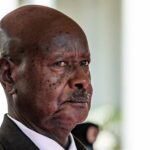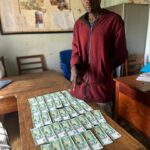Congo to investigate ‘jobs-for-sex’ accusations during Ebola outbreak
Published on October 9, 2020 at 1:54 PM by FACE OF MALAWI
The Democratic Republic of Congo (DRC) will investigate accusations of sexual exploitation and abuse by aid workers that were uncovered by The Thomson Reuters Foundation and The New Humanitarian, the country’s health minister said on Friday.
Five UN agencies and international NGOs have also launched inquiries after 51 women accused mainly foreign aid workers of demanding sex in exchange for jobs during the 2018-2020 Ebola crisis.
“We are sending a team next week to investigate,” Congo’s health minister, Eteni Longondo, told the Thomson Reuters Foundation.
“The aim is to know the truth and understand exactly what happened, and then we can pursue justice if we establish who is responsible,” he said.
The government probe will happen alongside internal inquiries by the World Health Organization (WHO), the U.N. children’s agency UNICEF, the International Organization for Migration (IOM), World Vision, and medical charity ALIMA.
Other groups named by women in the report were Medecins SansFrontieres and Oxfam.
Most of the women – many of whose accounts were backed up by aid agency drivers and local NGO workers – said numerous men had either propositioned them, forced them to have sex in exchange for a job or ended contracts when they refused.
The highest number of accusations – made by 30 women – were against men who identified as WHO workers, while eight women accused men who said they were with Congo’s health ministry.
When approached with the allegations, Longondo said he had received no such reports during the Ebola response but encouraged victims to come forward.
None of the women interviewed during the nearly year-long investigation said they reported the abuse to the organisations involved or to police because they were ashamed, afraid of reprisals or did not know how to.
Their accusations have prompted calls for greater scrutiny over the aid sector and tougher action including funding cuts if agencies do not tackle sexual abuse by staff.
The world’s second-largest Ebola outbreak brought thousands of aid workers and millions of dollars to the troubled region, ending in June after more than 2,200 people died.


